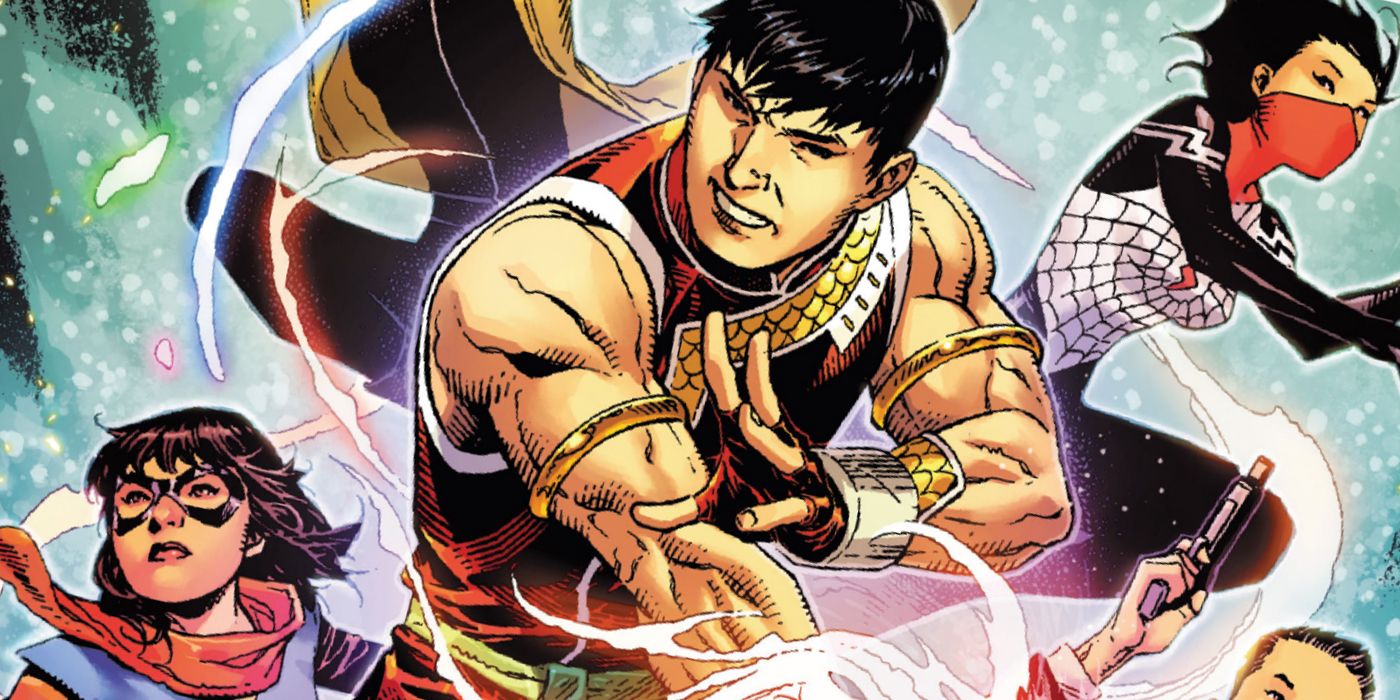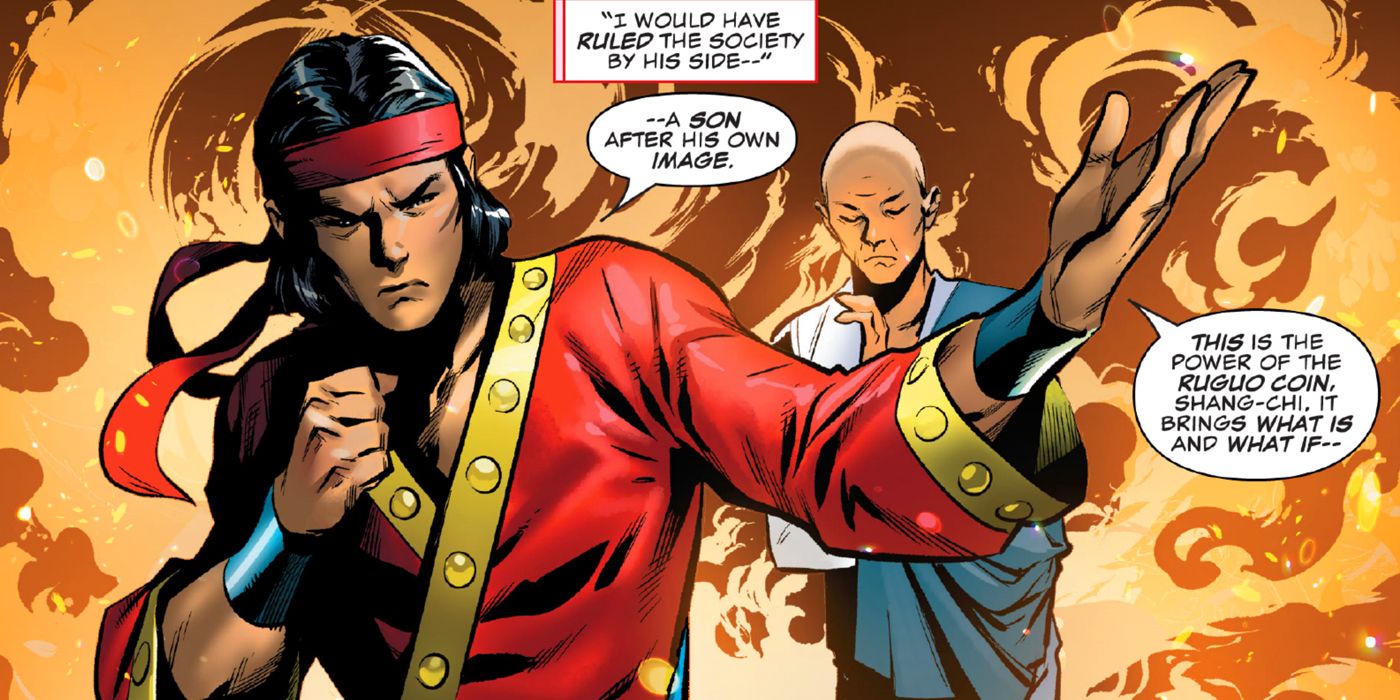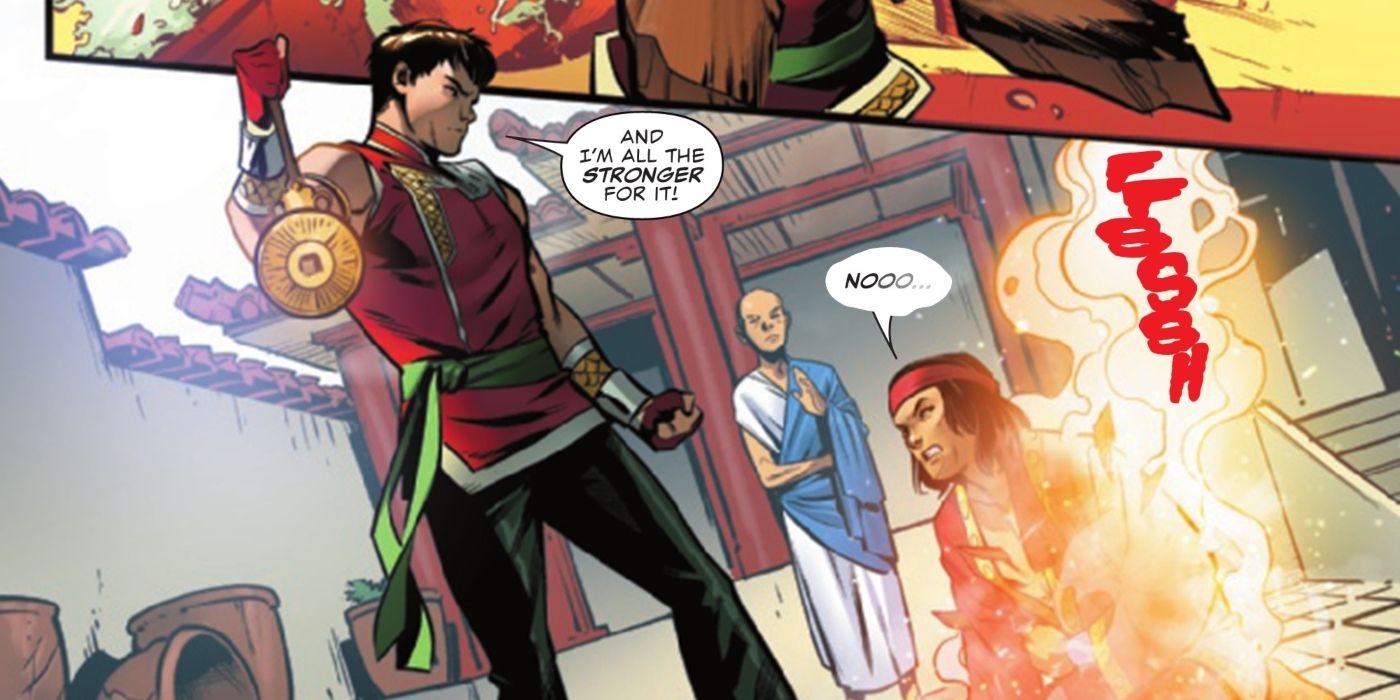WARNING: The following contains spoilers for the story "What Is Vs. What If" from Marvel Voices: Identity #1, now on sale
Shang-Chi's origin has always been tied to the actions his father forced him to take, and how a moment of doubt and humanity helped turn him into the hero he is today. But there are worlds in the multiverse where that didn't exactly happen for Shang-Chi.
In Gene Luen Yang, Marcus To, and Sunny Gho's story "What Is Vs. What If" from Marvel Voices: Identity #1, Shang-Chi comes up against a villainous version of himself in a monastery connection to the Watcher, and it has a tie to a classic issue of the original What If? comic series.
The story centers on the Shang-Chi of the core Marvel Universe visiting a mysterious monastery in the mountains that's home to the Order of Uatu, a temple where they observe the laws of the Watcher after an encounter with him centuries ago. Shang-Chi had come to claim the Ruguo Coin, a mystical item created by his father years earlier. The artifact is able to help Shang-Chi confront a possible timeline where he had fully pledged his loyalty to his father, becoming a deadly threat to the Avengers and a true heir to the villain. The coin even creates an avatar of that What If...? scenario in the form of the villainous Shang-Chi.
The two engage in a duel, where they prove to be equally matched. The villainous Shang-Chi is revealed to have further trained with their father, fully mastering the Deadly Hands techniques in a way the core version of Shang-Chi never did. But the heroic incarnation of the character reveals a number of unique and impressive moves inspired by his allies like Spider-Man, Captain America, Black Panther, and even his half-sister, Sister Dagger. With these skills, Shang-Chi is victorious -- claiming the coin and forcing the evil Shang-Chi to disappear back into the ether. But this wasn't the first time a villainous version of Shang-Chi was introduced who never left his father's side.
RELATED:Shang-Chi: Marvel's Next MCU Star Is Finally Embracing His Villainous Legacy
At the center of Shang-Chi's history is his father, who has gone through multiple changes over the years. Initially, his father was Fu Manchu, a central character in a popular series of Sax Rohmer novels in the early 20th century. While the character was relatively popular at his peak, he is today considered an offensive racial caricature of an Asian villain and is the epitome of the "yellow Peril" stereotype. While Shang-Chi's father has been rewritten and evolved into a new character named Zheng Zu, the character was still referred to by Fu Manchu when What If #16 by by Doug Moench and Rock Hoberg was published -- and is thusly heavily featured in the story.
After being sent to kill a man at the behest of his father, Shang-Chi learned the truth about his father from Nayland Smith. But on Earth-79816, Smith wasn't present at the time of the attack, and Shang fled the scene still convinced of the innate nobility of his father. Shang-Chi returned to his home and was further indoctrinated by the idea that murder is an acceptable path, while Smith's allies Black Jack, Clive Reston, and Leiko Wu move against him. Under orders from his father, Shang-Chi oversees the acquisition of corpses (unbeknownst to him, to be used as undead soldiers by his father in his crusade against England), and comes up against the trio. Realizing the true depths of his father's cruelty, Shang-Chi abandons his crusade -- but refuses to take on allies as he did in the core Marvel Universe.
In this Marvel Voices story, Shang-Chi is, for all intents and purposes, battling the echo of that evil version of himself, and arguably the complex legacy that comes with that Shang-Chi's villainous life. In a testament to the lessons his heroic journey through the Marvel Unvierse have afforded him, Shang-Chi is easily able to topple the specter of what could've been.
KEEP READING: Captain America & The MCU's Next Star Outsmarted Marvel’s Deadliest Minds



